The post Blind Stealing and Blind Defense: Two Sides of Pre-flop Poker Strategy appeared first on Championnat-De-Poker.
]]>Playing from the blinds is one of the essential components of pre-flop poker strategy. Many poker players either dread playing from the blinds since they don’t know what to do or are unaware of the disadvantages of being a blind and losing a lot of money trying to play as one.
This poker guide will cover essential things you need to know when playing from the blinds and when trying to steal them.
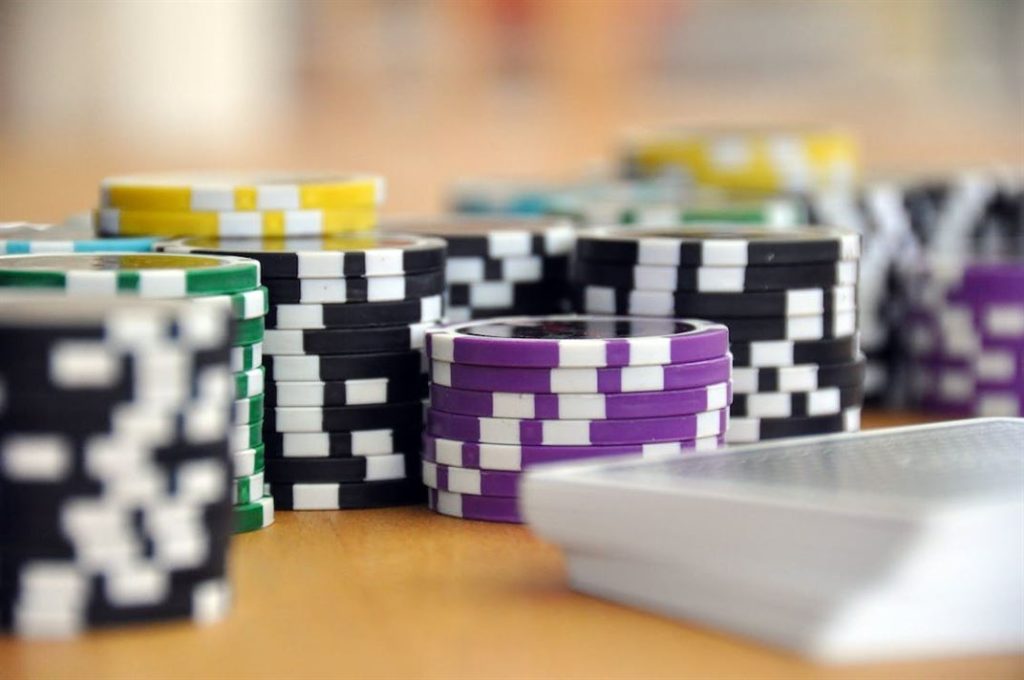
Prerequisites: Why the blinds are the worst positions in poker
If you’re wondering why pre-flop strategy revolves around the blinds so much, you must understand that the blinds are by far the worst positions in poker for two significant reasons.
The first is their informational disadvantage. The later you act in poker, the better. That’s because you get more information about the other players’ actions since they act before you. For example, if you notice that all players try limping into the pot pre-flop when you’re acting last, you can make a big raise to potentially win it on the spot. The blinds get the short end of the informational advantage stick, acting the last pre-flop but acting first on flop, turn, and river.
The second reason is the blind bets they must make. They are always a downside since you’re forced to put money in the pot without seeing your cards. If you get a terrible hand and have to fold, the blinds will have essentially become a tax. This is the primary source of frustration for newer players, as it’s hard to decide whether you should commit to try and salvage the blind bet or just give up and cut your losses.
Stealing the blinds, explained
So, knowing that the blinds are the worst positions in poker, players have developed a strategy known as “blind stealing.” It takes advantage of people’s reluctance to play from the blinds with a raise from late position pre-flop.
When done correctly, you’ll often get the blinds to fold with little resistance, allowing you to quickly pick up the pot. While the pot won’t be that big, frequent blind stealing is an easy way to build up your stack, especially in the late stages of tournaments where the blinds are larger.
Tips for stealing the blinds: Steal from tight players
Stealing the blinds requires your opponent to fold to your pre-flop bet, so you need to be careful about who you target. Tight players are the best players to steal from since there’s a high chance they’ll fold pre-flop, especially when out of position.
Your opponents’ aggression is also a factor affecting how they might respond to a steal attempt. Passive players will often just call, while aggressive players might try to punish you with a 3-bet,
You also need to consider how experienced your opponents are. Skilled players will understand the importance of defending their blinds and will know how to defend them properly. Blind stealing might not work well against better opponents unless you have a read on them.

Blind defense, explained
Defending your blinds is simply calling a raise you think your opponent is trying to steal your blinds with. Since stealing the blinds is a prevalent technique, you must learn how to defend and play from the blinds properly.
While we did talk about how the blinds are hard to play from, that doesn’t mean it’s impossible. In fact, the forced bet in the pot often gives you better odds to call, meaning that as long as your hand has some potential, you should try defending your blinds more often.
Tips for defending your blinds: Defend more often in tournaments
The value of stealing and defending your blinds increases significantly in tournaments and 6-max cash games. Tournaments have steadily increased over time, so while it may be fine to give up your blinds early on, you need to start fighting for them a lot more in the later stages.
6-max cash games mean the blinds rotate around the hand a lot faster, meaning they’re a lot more important. Being unable to play from the blinds means you’ll be bleeding money quickly.
Know when to give your blinds away
Finally, as much as it hurts to do so, sometimes you just have to let the blinds go. Think about it this way, what’s worse to lose: Your blinds or a pot you’ve invested money into on many different rounds? Don’t over call because the blinds are still the worst positions in poker; you don’t want to get into a terrible spot pre-flop because you felt an irrational need to defend your blinds.

Master pre-flop play online!
Even with the techniques discussed in this article, there’s no way to master pre-flop strategy without practice. We recommend online poker if you’re trying to learn the game for a few reasons.
It has a wide variety of game types, from the classic Texas Holdem to formats like Omaha, where pre-flop play is less important than having a good post-flop strategy with draws. Online also has a faster pace, allowing you to get more games in and learn the game quicker.
The post Blind Stealing and Blind Defense: Two Sides of Pre-flop Poker Strategy appeared first on Championnat-De-Poker.
]]>The post Mastering Pocket Sevens in Poker Cash Games: A Comprehensive Guide appeared first on Championnat-De-Poker.
]]>This article will explore the strategies and considerations for playing pocket sevens in cash games. By understanding the nuances of this hand, you can make informed decisions and maximize your chances of profitability.

Knowing the Strengths and Weaknesses
As mid-level pocket pairs, pocket sevens offer strengths and weaknesses that players must be aware of to make informed decisions. One of the critical strengths of pocket sevens lies in their potential for improvement on the flop, turn, or river. With multiple opportunities to catch a set or make a straight or flush, pocket sevens hold reasonable value.
However, it is essential to recognize the weaknesses associated with this hand. The primary vulnerability of pocket sevens is their susceptibility to higher pocket pairs. If an opponent holds pocket eights or higher, the chances of outdrawing them significantly decrease. In such situations, caution and careful consideration of the board’s texture and opponent’s actions are essential.
Additionally, pocket sevens face the threat of overcards. Overcards are higher-ranked cards on the board that can diminish the relative strength of pocket sevens. When faced with overcards, evaluating the potential for your opponents to have connected with the board becomes imperative, as adjusting your strategy accordingly.
Another weakness of pocket sevens is their susceptibility to coordinated board textures. If the community cards present a coordinated and potentially dangerous board, such as with straight or flush draws, the relative strength of pocket sevens diminishes. In such scenarios, carefully analyzing the board and opponents’ actions can help you determine the best move.
Pre-Flop Considerations
Position
Your position at the table is paramount when deciding how to play pocket sevens. In an early position, it is generally advisable to play cautiously, as you have little information about your opponents’ holdings. In middle or late positions, you gain more control and can consider more aggressive actions.

Table Dynamics
Observing the table dynamics is crucial before making pre-flop decisions. Factors such as the playing style of your opponents, stack sizes, and previous actions will influence your strategy. Tight players and aggressive opponents may warrant a more conservative approach, while loose and passive players may present opportunities for aggression.
Stack Size
Consider your stack size for the blinds and other players. A deep stack allows for more flexibility, whereas a short stack may require a more aggressive approach to maximize your chances of accumulating chips.
Post-Flop Strategies
Assessing the Board
After the flop, carefully evaluate the board’s texture. Analyze the presence of potential draws, overcards, or dangerous coordinated cards. If the board is favorable, with low or unconnected cards, your pocket sevens gain relative strength.
Opponent Analysis
Pay close attention to your opponent’s actions and betting patterns. Consider using your pocket sevens to apply pressure and extract value if they display weakness or uncertainty.
Conversely, if faced with significant aggression or signs of strength, exercise caution and be prepared to fold if necessary.
Bet Sizing
Effective bet sizing is essential for maximizing value and minimizing losses. Consider making continuation bets to represent strength and protect your hand against potential draws when holding pocket sevens. However, avoid overbetting the pot, which may isolate you against stronger poker hands.
Calculating Pot Odds
Understanding pot odds is critical in decision-making. If the pot odds are favorable, you can justify calling or raising, depending on the circumstances. However, folding is prudent if the pot odds are unfavorable and the likelihood of improving your hand is low.
Adapting to Changing Dynamics
Table Image
Your table image and other players’ perception of your playing style is valuable. Maintain a balanced and unpredictable approach to keep opponents guessing. It allows you to exploit their tendencies and extract more value when holding pocket sevens.
Adjusting to Opponents
Adjust your strategy based on your opponents’ tendencies as the game progresses. Against loose and aggressive players, tighten up and play more selectively. Against tight and passive players, capitalize on their reluctance to play big pots by becoming more aggressive.
Bankroll Management
Bankroll management is not just a general consideration when you play poker; it is especially vital when playing pocket sevens in cash games. Understanding the importance of proper bankroll management can help you navigate the ups and downs of your poker game and maintain longevity in your journey.
Regardless of your skill level, variance is an inherent aspect of poker. Pocket sevens, being mid-level pocket pairs, are not immune to the fluctuations and swings that come with the game. It is crucial to approach each hand and session with a long-term perspective rather than focusing solely on short-term results.

One of the critical aspects of bankroll management when playing pocket sevens is to avoid risking a significant portion of your bankroll on a single hand or session. While pocket sevens can present opportunities for potential improvement and value, poker has no guarantees. Placing too much of your bankroll at risk in a single hand can lead to severe losses and jeopardize your ability to continue playing.
By adopting a conservative approach to bankroll management, you can ensure you have the necessary funds to withstand downswings. It means carefully managing your stakes, considering your bankroll size and the potential risks.
It is generally advisable to play at stakes where the maximum buy-in is a reasonable percentage of your overall bankroll. This conservative approach acts as a safety net, mitigating the impact of variance and providing the financial stability required to weather rough patches in your game.
Conclusion
Mastering pocket sevens in cash games require skill, strategy, and adaptability to the poker tips that you have learned. By understanding their strengths and weaknesses, making informed pre-flop decisions, and employing effective post-flop strategy, you can navigate the complexities of this hand. Remember, practice and experience are vital to refining your play and becoming a formidable opponent at the poker table.
The post Mastering Pocket Sevens in Poker Cash Games: A Comprehensive Guide appeared first on Championnat-De-Poker.
]]>The post 5 Advanced Poker Tips to Help You Win More Pots appeared first on Championnat-De-Poker.
]]>This article will highlight five advanced tips to help you take your poker game to the next level.
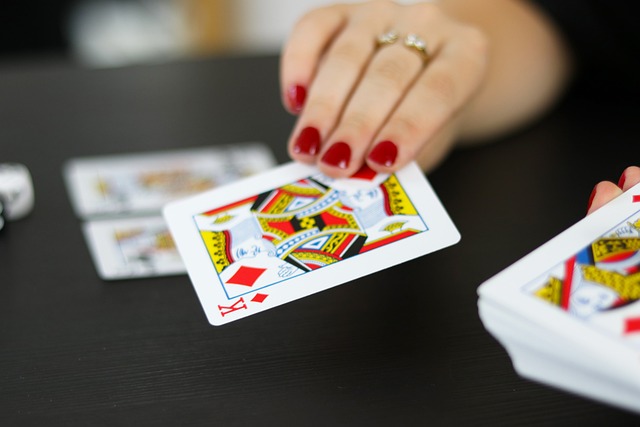
One of the key strategies to winning more pots is knowing when and how to bluff effectively. One technique that successful poker players use is using non-made hands with backdoor flush draws to bluff.
Experienced players know the importance of recognizing and utilizing their non-made hands. These can include plays such as bluffs, semi-bluffs, and various types of draws. While non-made poker hands may not have immediate value, their strategic potential can be significant.
This strategy can be especially effective in no-limit hold’em games because it allows you to represent a strong hand while hiding the fact that you have a weak one. By raising or betting aggressively with a non-made hand and a backdoor flush draw, you can make your opponents think twice about calling or raising. It will ultimately take the pot down without having to show your cards.
When it comes to poker strategy, a big part of winning is knowing when and how to use different tactics to your advantage. One such tactic is the check-raise, and if you’re looking to up your game, you might want to consider using it more frequently from the big blind.
You can pressure your opponents, potentially forcing them to fold and allowing you to scoop up more pots without relying on premium hands. Plus, if you can pull off a successful check-raise, you’ll also be able to build a bigger pot that you can later win if your hand improves on the turn or river.
It isn’t a strategy to use blindly in a poker tournament or any game, as it requires careful consideration of your opponent’s tendencies and the board’s texture.
Pocket Pairs
Having a pocket pair means you have two cards of the same rank in your hand, which increases your chances of hitting a set (three of a kind) on the flop, turn, or river. And in multiway pots, your opponents are likelier to have weaker hands, making it easier for your pocket pair to triumph.

There are some risks, including a possible flush or straight forming on the board, but with the right strategy, pocket pairs can be an intelligent way to build your poker bankroll in multiway pots.
Knowing when to play aggressively or slow your pocket pair can make all the difference. Stay focused, stay aware, and remain confident in your pocket pairs.
Suited Connectors
Suited connectors are an exciting way to play poker, especially in multiway pots. They have the potential to turn into valuable hands, making them money-makers. But how can we use them correctly?
First, we must understand that suited connectors require some context to play them to their full worth. We should only enter a pot with suited connectors when we are in a late position, facing less than four bets. They also work great in pots where other players are limping in or calling with weak hands.
The key is to be patient and wait for the right cards, such as over or suited cards. With practice and the right mindset, you can make the most of suited connectors and become a successful multiway pot player.
Poker is a game about making strategic moves and taking calculated risks. One such move is the check-raise with draws after calling a 3-bet.
It might seem intimidating initially, but it’s a technique that can help you win more pots and keep your opponents guessing. Waiting to move until after your opponents have put in more chips effectively increases the pot size and creates opportunities for bigger payouts.
Timing is key. It would help if you were confident that your draw is worth the investment and that your opponents aren’t likely to have a hand to beat you.
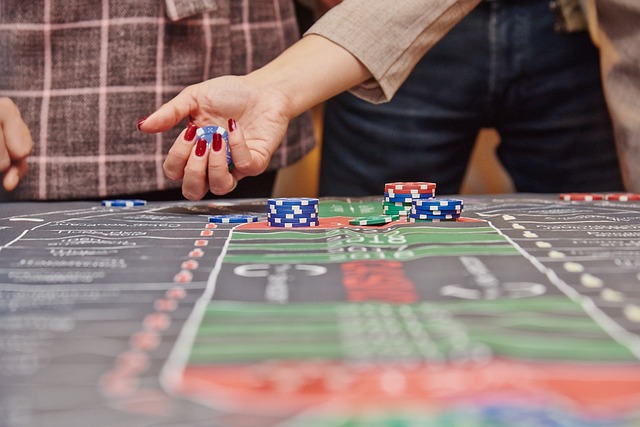
The nut advantage means that you hold the best possible hand at that moment with the cards on the table. It puts you in a commanding position over your opponents, who may have a weaker hand.
Recognizing when you have the nut advantage lets you make more informed decisions about how much to bet, raise or fold. Sometimes, it may be possible to bluff your opponents into thinking you have the nut advantage when you don’t. It will allow you to win the hand despite having a weaker hand than your opponents.
Having the nut advantage isn’t always enough to seal the deal. It is where over-betting comes in. Over-betting lets you put more pressure on your opponents and force them into difficult decisions. This strategy is particularly effective when you have the nut advantage, as your opponents will be less likely to call or raise without a strong hand.
Overbetting has drawbacks, so weighing the risks and rewards before making this move is essential. Considering over-betting when you have the nut advantage can be an innovative and effective way to win more pots and come out ahead when you play poker professionally.
Conclusion
Poker is a complex game that requires skill, strategy, and a lot of practice. But with the right techniques, multiway pots can be an effective way to win more hands. Whether pocket pairs, suited connectors, or over-betting when you have the nut advantage, plenty of techniques help you become a winning poker player.
The post 5 Advanced Poker Tips to Help You Win More Pots appeared first on Championnat-De-Poker.
]]>The post Eyeing Your Career Path? Love Poker? You Might Just Succeed at Going Pro With These Tips! appeared first on Championnat-De-Poker.
]]>It’s a demanding occupation that requires skill and hard work, and only some succeed. So, before you consider leaving your job to pursue a poker career, it’s essential to understand the realities of the profession.
Make sure your bankroll can take it
If you want to make a living by playing poker, treat it as a business and ensure that you have sufficient funds, just like you would for any other company. Even playing at low stakes can accumulate expenses, making it essential to have monetary support. Losing successive games is a common occurrence, even for experienced individuals.
Therefore, having enough money is vital to avoid bankruptcy and the need to look for a job. You should have at least 25-30 buy-ins for your selected poker game and save 3-6 months’ living expenses. However, some players prefer to be extra careful and will continue working until they have saved enough to cover six months’ costs and have 40-50 buy-ins.
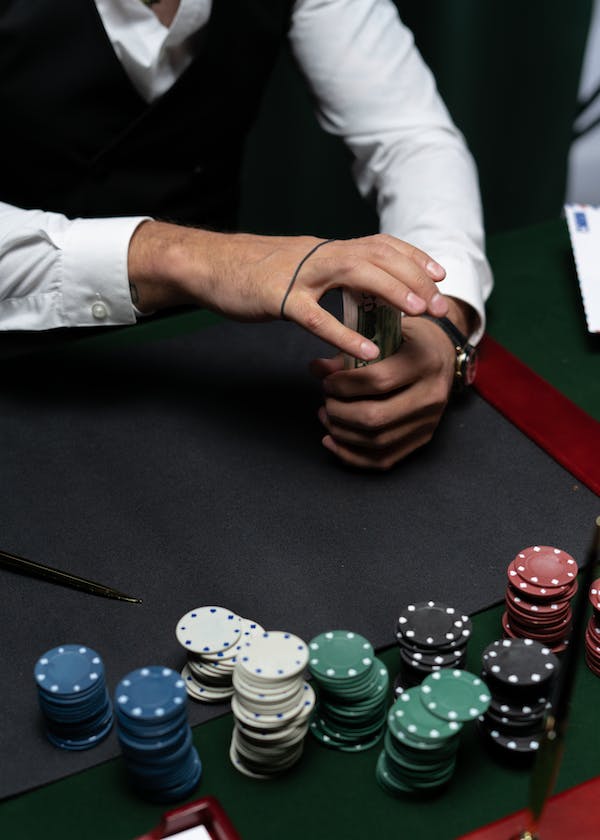
Be physically and mentally prepared
Professional poker players know that their behaviors outside the game influence their performance. Much like other athletes, physical health is crucial for their success. Poker players must commit time and energy to care for themselves to improve their well-being.
Be prepared to hustle weird hours
If you aspire to become a professional poker player, you’ll have to make lifestyle changes, as most pros need to follow the regular 9-5 routine. They prefer to play in the evenings and sometimes go till the wee hours of the morning since that’s when the games are most profitable.
The poker game with the most action happens late at night when recreational players are either intoxicated or not playing their best. The trick is to find such games and utilize them to your advantage.
Professional poker players often find balancing relationships and their careers challenging due to the random and often late-night hours. Some poker pros are single because they struggle to find a partner who can comfortably handle such a lifestyle.
Additionally, frequent travel, especially for those participating in tournaments, puts more pressure on relationships. Therefore, if you plan to become a professional poker player, you should be prepared to accept being single or find someone who can cope with the demands of your job.
Don’t let fear stop you
It’s important to remember that professional poker players are human too. They have personal problems, music preferences, and need to take bathroom breaks – all of which can cause them to make mistakes during the game.
While it’s necessary to fine-tune your strategies, it’s equally important to recognize that you and your opponents are prone to errors. Professional players make their living by playing against those who make more frequent or more extensive mistakes than they do.
When playing against a professional in poker, it’s essential to avoid making mistakes. However, you will likely make errors, so only dwell on them briefly. They happen to everyone. Unlike other games like soccer, one error in poker won’t necessarily make you lose the game right away. Your opponents will need to take advantage of your error. So stay relaxed and composed no matter what happens.

Inhale peace, exhale stress
Playing poker against skilled opponents can be difficult if you feel mentally drained from stress. You must remain calm and think clearly, even under pressure, to perform well in this situation. If it seems overwhelming, there are some tips to cope with stress, such as taking deep breaths, using the extra time given wisely, picturing opponents naked (or not), and even ordering a shot for an extra boost and win a poker game.
Be open to learning new things
Many highly skilled poker players in the top 10 to 15 years are no longer considered elite. Adapting to the ever-changing poker strategy is crucial to avoid losing the game. In 2003, when the poker boom arrived after Chris Moneymaker’s WSOP Main Event victory, millions started playing poker for the first time. However, most players could not perform well without sufficient knowledge, allowing professional players to take advantage of them.
The game of poker has evolved, and now younger players are dominating with a more analytical approach known as “game theory optimal.” As a result, many old-school pros have been edged out as they haven’t learned this modern strategy. It’s essential for both online and live poker players to constantly study and adapt to the ever-changing game to stay competitive.
Have World-Class Confidence
To excel in flush poker, being physically and mentally well-prepared before entering the poker room is crucial. However, some players need help to gain the confidence necessary to succeed.
While most players believe they are skilled, only a few are confident. When you have complete faith in your skill and knowledge, you can play your best regardless of the hand dealt or situation that arises.
While confidence can be helpful, more is needed to win poker games. One must put in a lot of time and effort studying their play and others to reach world-class status. This requires a lot of hands played and practice away from the tables.
Once you have put in this effort, you will likely see great results, and your confidence will increase accordingly. This reflects the time and energy you have invested in improving your skills.

But, Leave Your Ego
If you’re playing poker for a living, focus on building a large bankroll and steady income rather than trying to prove yourself against top pros. For instance, Daniel Negreanu can afford to lose $1.2 million to Doug Polk without being significantly impacted financially. Still, most pros can only participate in high-stakes matches against players like Polk if they risk their livelihood.
To maximize your earnings, focus on playing against less experienced players, particularly those with higher incomes. Remember that paying your bills should be the primary goal, not demonstrating your abilities.
Conclusion
As a professional poker player, it is essential to stay focused and motivated. Success isn’t always instantaneous; you must practice and perfect your strategies, but you can become a world-class player with dedication and consistency.
It’s also essential to develop good habits of bankroll management, discipline, and long-term planning and treat poker games, including Texas Hold em, like a business venture. If these tactics are implemented, your success can be measurable and consistent. Your poker career is just beginning – go out there and make it happen!
The post Eyeing Your Career Path? Love Poker? You Might Just Succeed at Going Pro With These Tips! appeared first on Championnat-De-Poker.
]]>The post Want to Pepper Interest in Your Home Games? Introducing Mixed Games Poker — The Spice You Need! appeared first on Championnat-De-Poker.
]]>Unlike the somewhat repetitive nature of poker, mixed games introduce a new world of exciting experiences that are enjoyable to explore. However, it can be overwhelming at first due to their unique formats. That’s why we have designed a guide to assist you in getting started with mixed games.

What Are Mixed Poker Games?
Mixed poker games involve multiple variations of poker combined into one game, sometimes up to ten. The games rotate from one type to the next, such as moving from Hold’ em to Omaha. The rotation speed differs based on the house rules and whether playing cash games or tournaments.
Two common ways to rotate games in a tournament are using levels/blinds or the number of hands played. With levels/blinds, a new game is played every 3-60 minutes when the blinds increase. With several hands, a new game is played after a predetermined amount of hands, such as every nine hands in a full-ring cash game.
Strategies to Consider
To avoid drawing the short stick during a good poker game, you must learn the basic strategies of each game you play. Even if you can only become an expert at some games, knowing these basics will prevent your opponents from taking advantage of gaps in your knowledge.
For example, in 2-7 Triple Draw, it’s advisable to avoid playing hands that don’t include a 2, and in high-low games, aiming for a low hand can be more beneficial since it can potentially win in two ways.
Knowing even the most basic strategies can give you a significant advantage over someone who knows nothing about the game in every game. Learning these winning strategies for any game you plan on playing is relatively easy.
Even for the most obscure matches, there are strategy books available. You can search for relevant articles or chapters within books if they are not available. Additionally, there are numerous instructional videos and strategy articles for most games, including poker and poker cards.
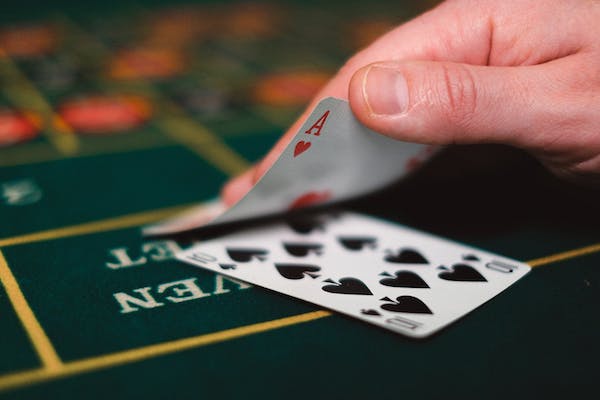
Finding a game that includes all the specific games you are looking for may be challenging. Suppose you discover a $10/$20 B.O.T.E. game that offers Omaha, triple draw, and stud hi/lo, but you have no prior knowledge of badugi. In this scenario, you might take a break when the game changes to badugi by pretending to go to the restroom.
Skipping one round in a mixed game is generally not recommended. If you join a mixed game, make sure you are willing to play all the games involved. However, from an ethical perspective, missing one orbit of a game is not a serious offense. Consider how frequently players step away from the table during a regular Hold’ em or Omaha cash game. If the game changes only when the dealer pushes or every two orbits in mixed games, it’s challenging to skip an entire game. It’s unfair to your opponents, and it’s hard to justify being away from the table for a long time.
Furthermore, it can be advantageous to try playing a game you are less familiar with or not as good at. While reading books or watching online training videos can help enhance your skills, the key to becoming proficient is through practice. The most effective way to improve is by gaining experience playing the game.
Instead of trying to become an expert in every poker variation, focus on a few games that you enjoy and are good at. Play those games more aggressively and take advantage of your opponents’ weaker skills in those games. Remember, it’s impossible to master every variation, so focus on what you do best.
If you need to be more skilled in certain games, it’s better to play cautiously and aim to lose money in cash games, at least not getting eliminated in tournaments. However, it would be best if you eventually worked on improving your skills in those weak games. Otherwise, you will always be a target whenever those games are played.

To improve your game, observe your opponents to identify their weaknesses. Please note which games they make the most mistakes playing or play fewer hands. This information can guide you to play more aggressively or steal their blinds and antes. Remember, every game is a chance to learn, and winning isn’t always necessary to benefit from a mixed poker game.
What are the recommended things to take notes on during gameplay? Take note of your opponents’ most substantial and weakest games and any opportunity you can use to your advantage in the future. Write down your best and worst games in that rotation. If you encounter hands you need clarification on, jot them down so you can discuss them with your peers or in a strategy forum later. Also, note the poker hands you want to review using tools such as a hand replayer and odds calculator.
Focus on taking high-quality notes to improve your performance and avoid losing money in mixed poker games. These notes can help you identify your weakest areas, which you can then work on strengthening. This tip applies to all types of poker games, not just mixed formats.
Final Thoughts
Mixed games are an enjoyable way to challenge your skill and luck in poker. Whether you’re an experienced pro or new to the game, it pays to practice these strategies and learn to adapt to each game type. Playing mixed games requires knowledge of different formats, but with some experience, you can soon become a master at this enjoyable variation.
Knowing when to play sure hands and when to take risks is critical. Ultimately, understanding the differences between the various types of card games available within the mixed game will significantly improve your odds of success and greatly improve your poker strategy. So be sure to put in the time, practice, and refine your skillset, and good luck!
The post Want to Pepper Interest in Your Home Games? Introducing Mixed Games Poker — The Spice You Need! appeared first on Championnat-De-Poker.
]]>The post When Lady Luck Strikes: Which Tournament Superstitions Do Poker Players Still Believe In? appeared first on Championnat-De-Poker.
]]>You must have many chips on your table when you want to play aggressively.
Players commonly believe that many chips are necessary to pressure opponents and that the enormous stack at the table is the “table captain.” However, this is not true. Every player gets dealt two cards, and each should play their hand to the best of their ability.
Poker differs because each hand presents a new challenge and has no predetermined game plan. You get two cards and have to make the most of them before moving on to the next hand.
Several things need to be considered while playing a hand, with stack size being one of the most crucial factors. Occasionally, playing aggressively is essential when you have a smaller stack and more conservatively with a giant pile.

You Can’t Defend the Big Blind with Under 10 Blinds
Experienced players often criticize those who defend their short stacks from the big blind. However, if you float their open with a hand like T-9o and end up hitting a pair on the flop, going all-in, and doubling up, they may reluctantly give you the chips and sarcastically say, “Well played.” Many players believe you should avoid folding an open bet, especially when your hand has fewer than a certain number of big blinds.
Using poker hands training material from 1998 is not advisable because it contains outdated information that many people still rely on. Today, most players use a smaller open-raise size compared to 1998.
If you’re in the big blind and face a min-raise open, it is enough to have about 20% raw equity to continue. It is important to note that most hands have at least 30% equity against various opening ranges. Therefore, even though you may fold many flops, your playable hands’ equity is acceptable to justify defending them.
When you have a short stack, it’s easier to use equity when you need to be in a better position. This is because you have little wiggle room for your moves. For example, you have 6 big blinds, and the cutoff player min raises. You hold T 8
8 and defend your hand. In this situation, it’s doubtful that you’ll make a post-flop mistake because you’ll go all-in if you hit something.
and defend your hand. In this situation, it’s doubtful that you’ll make a post-flop mistake because you’ll go all-in if you hit something.
To clarify, if you do not have any solid cards or potential combinations after the first three community cards are revealed (known as the flop), it is best to check initially and then fold if your opponent bets. This will help you save some of your remaining chips.
However, if you have a larger stack of 30 big blinds or more, your opponent may be more likely to bet on subsequent rounds of the game, making it harder for you to stay in the game and make a winning hand. On the other hand, if you have fewer chips left in your stack, it can be easier to strategize and make the most of the cards you have after the flop.

When You Play, You Play to Win With Every Hand You Play
Some players use the phrase “Bingo!” after losing all their chips early in a poker tournament due to reckless play. They claim they had to play aggressively to win, but this strategy often results in early elimination. It’s important to remember that winning a tournament on the first day is impossible.
Your goal should be to play solid and strategic poker online or live and adjust according to your opponents. Playing hyper-aggressively doesn’t necessarily mean you have to play for the win. Playing to win is often unrealistic, but sometimes it’s also the right strategy to move forward.
When there is a chance of winning, it’s better to focus on winning rather than just playing. In some cases, like during the final two tables of the WSOP Main Event, it might be reasonable to take significant risks.
Sometimes, you may have to confront the chip leader to avoid being blinded. However, these high-stakes situations demand cautiousness, as there’s a thin line between taking calculated risks and making kamikaze moves.
It’s important to note that aiming for 2nd or 3rd place in tournaments with significant prize money is okay. Tournament players must accept and take advantage of pay-jumping opportunities like they cherish rare victories. Winning everything is impossible, and your success, in the long run, depends on how you handle the big picture.
“Every Poker Tournament should be played the same” is inaccurate because different tournament structures, such as satellite games, freezeouts, knockouts, and deep stacks, require different strategies.
It is essential to consider the conditions specific to each game, such as the number of entrants, buy-in fee, prize pool, payout places, and the opponents you are playing against. For example, depending on the payout places, your strategy may need to be adjusted during the bubble.

Conclusion
Poker tournaments can be a fun, safe, and entertaining way to play the game if you enter it with realistic expectations. Remember that the unpredictability of poker game tournaments makes them exciting, and the thrill of winning first place is worth the risks involved.
Preparing for a tournament is essential to knowing your bankroll, having a good strategy, and familiarizing yourself with the tournament rules. Do research before signing up for any tournament, and go in well-prepared. That way, you’ll be sure to enjoy playing your best game!
The post When Lady Luck Strikes: Which Tournament Superstitions Do Poker Players Still Believe In? appeared first on Championnat-De-Poker.
]]>The post Having a Poker Night at Home? Here’s Some Tips on Dealing Perfect Games appeared first on Championnat-De-Poker.
]]>The dealer has more responsibilities than just shuffling and dealing poker cards. They also supervise the game, manage the pot and bets, ensure that all players follow the rules, and distribute the winnings properly. In professional settings like competitions or casinos, special machines or dealers shuffle and deal the cards, but players take turns being the dealer for home games.
The dealer’s primary responsibilities include shuffling the deck to randomize the cards without revealing them and dealing with the cards quickly and accurately without exposing them. The dealer may handle both tasks during each turn in some games, while in others, one player shuffles a deck while the dealer deals with another.

The General Rules
To those who need to become more familiar with home poker games, it is essential to know the proper etiquette beforehand. Using plastic cards for the game is recommended, which are a bit pricey.
If not, it is common to use a new deck of cards for dealing. However, if you are hosting, it is up to you. When dealing, you should first shuffle the cards thoroughly at least seven times to ensure randomness.
To ensure the cards remain separate:
You can decide what criterion to use to determine the dealer. For example, you might make the first player who receives an ace the dealer or uses the jack or any other card you choose. Regardless of your choice, announce it as you deal the cards individually, with the cards facing upward.
After determining the dealer, dealing will continue as the game begins. The remainder of this message will provide more details about how to be the dealer in your home poker game.
Shuffling and Dealing
Before dealing with a hand, the cards must be shuffled to ensure they are randomly ordered. The cards should be shuffled four or five times and cut at least once. When dealing, make sure not to reveal the bottom card to any players, as this could reveal information about what cards are not dealt.
In Texas Hold’em, the dealer button moves clockwise after each hand. The position of each player relative to the dealer button decides when it’s their turn to act. The Small Blind, which is the first player to the left of the dealer, and the Big Blind, which is the player next to the left of the Small Blind, must place mandatory bets into the pot before any cards are dealt.

Learning “Cards Speak”
When you want to play poker with friends in the comfort of your own home, the standard rule in any home poker game is to follow the “Cards speak” principle. This means that the player with the best hand is determined solely by the cards, regardless of what they announce.
For example, if a player has a straight flush but only announces a straight, the straight flush still counts as the winning hand. As the dealer, you are responsible for identifying the winning hand and clarifying any confusion about its strength.
Tips on Dealing Better in Dealing at Home
To avoid missing cards mid-game, take a few minutes before the game to organize each deck by separating it by suit and arranging it by rank. Using a cut card for each deck is also recommended to prevent exposing the bottom card during dealing and to discourage cheating.
To start a new game round, ask one player to deal and request the player seated two spots to the left to shuffle a spare deck for the upcoming game. Once the shuffling is complete, the dealer should offer the deck to the player on his right for a cut. If this player declines to cut the cards, someone else can cut the deck instead. Then the dealer can proceed to deal the cards.
Some recommend using the poker table standard shuffle method, which consists of riffle, riffle, box, and riffle. You can watch a video of this shuffle method if you’re unfamiliar. Even if home game dealers cannot perform this shuffle perfectly, they should still try to follow it. It’s best to avoid the shuffle method that shifts clumps of cards from the top to the bottom of the deck. This type of shuffle often results in multiple series of cards grouped.
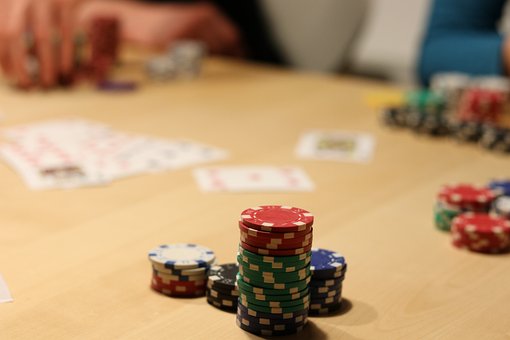
It is recommended to have the dealer call the game before beginning the deal, mainly when playing the dealer’s choice. Avoid calling the game after dealing has commenced or after all the cards have been dealt, as it may lead to games with up-cards being called after they have already been exposed.
This could give the dealer an unfair advantage since they may deliberately call a game to their advantage after viewing some of the exposed cards. For instance, a dealer could deal themselves a deuce and then declare that the game is “razz-7-card stud low.”
To avoid confusion, please ensure every player has their ante posted by the dealer. If the game only uses blinds, please ensure they are posted before dealing cards. If players prefer to ante individually, please have them post their antes in a specific order or collect them in order.
Conclusion
Poker nights at home can be a great way to practice and refine your strategy while you have fun with friends and family. It doesn’t matter if everyone plays for low or high stakes. The most important aspect of playing poker game is ensuring everyone understands the rules so that the game remains fair and entertaining.
Reviewing the rules beforehand will make it easier to explain to them as you get started with the actual play. Have patience with each other, recognize when a mistake has been made, and always be open to learning something new.
With determination, knowledge of basic poker strategies, proper bankroll management techniques, and a little luck, you are well on your way to mastering the art of gambling from your home. Hopefully, these tips will help make your next poker night more successful.
The post Having a Poker Night at Home? Here’s Some Tips on Dealing Perfect Games appeared first on Championnat-De-Poker.
]]>The post Seated on the Button: Taking Advantage of the Best Position in Poker appeared first on Championnat-De-Poker.
]]>
You Must Pay Attention to the Action
When you sit on the button, paying attention to all the action that happens before you is important. It includes how many players are in the pot at any given time, how strong their hands may be, and what bets they make. This information can help you make more profitable decisions when it comes time for you to act.
You Have the Opportunity to Steal Pots
Sitting on the button in poker gives the player a significant advantage, as they can use their knowledge of the hand’s progress to benefit. Those on the button have the great opportunity to “steal” pots by exploiting positional advantages.
With this extra information, they can make better informed and aggressive plays that enable them to bloat pots late in tournament play. You can even win pots outright without having a strong hand against opponents who have overcalled and over-bet pre-flop. It takes skill to exploit these opportunities, but if new poker players understand what they mean, they will be well on their way to making winning plays from the button seat.
You Can Use Your Position to Bluff
A successful bluff relies heavily on timing and reading other players’ reactions, which can be more accurately done when positioned late in hand. With practice, bluffing from the button can become an extremely successful technique as it gives you enough time to convince your opponents that you have a strong hand.
You Can See How Other Players React
When seated on the button, you’re in a good spot, as you’ll experience your opponents’ reactions to the flop when it hits. It allows you to make informed decisions based on how they choose to play their hands.

It’s important to remember that this can be a challenging task. Experienced players often play false tells and other tricks to avoid your expectations. It’s necessary to focus on achievable objectives like reading betting patterns and noting any specific habits or quirks from other players at the table. If you take advantage of this, sitting on the button will give you a better chance of winning every hand.
You Can Put Players on Notice
Sitting on the button in poker is a great position, especially if you play poker online. When seated on the button, you have the last and most advantageous opportunity to act due to seeing how your opponent’s action plays out first.
It allows you to use a good strategy with more information than anyone else. Of course, other experienced players probably notice this, too, so play cautiously and be sure to put them on notice. Making tight decisions and mixing up play can be difficult when sitting on the button, but with some practice, your play will become second nature.
You Can Use Players’ Patterns Against Them
You have a significant advantage when seated on the button in poker because your opponents have already revealed their play patterns and style. Being “on the button” means that after all of your opponents have taken their turns, you will be the one to act last and will thus have access to more information than anyone else.
It puts you in an optimal position by picking up on their playing tendencies, such as how they tend to bet against certain hand ranges or whether they become ultra-passive when bluffing. This knowledge can help you exploit your opponents’ disparities to maximize hand equity. It will lead to improved chances of taking down the pot.
You Have More Flexibility
Being seated on the button when you play poker has plenty of advantages for players, as it gives them the flexibility to view the trends and tendencies of their opponents before making a move. You can get a better overview of your opponents’ behavior and make the best choice for what action to take next.
Aside from that, playing from the button also lets you keep track of how much money is in play and puts you in control later down the line when more money is bet, and hard decisions must be made. All these factors combine to make being on the button one of the most coveted positions at any poker game.
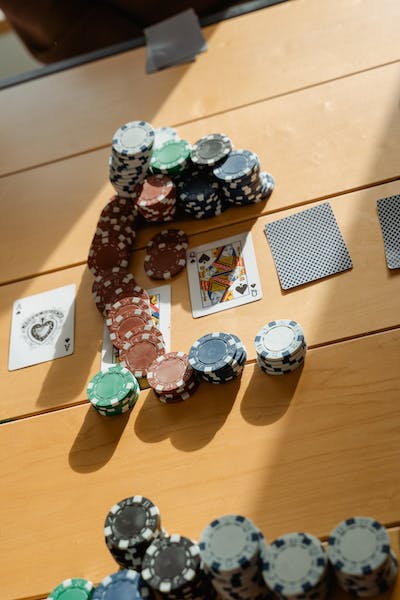
You Can Play More Hands
Sitting on the button in poker offers some notable advantages. Being last to act after the flop gives the button greater control over the action, providing more insight into other players’ holdings. The ability to select hands is not affected by the position, and few hands can be discarded on the button compared to other positions.
Playing more hands also ensures more opportunities for creating value, making it an intelligent choice for button-seat players with a balanced style of play. This opportunity is essential to maximize potential earnings at the poker table.
You Can Take Advantage of Weak Players
When you’re seated on the button in poker, it’s an excellent opportunity to take advantage of weak players. The button position means you will act last out of every round, so you have time to observe and assess your opponents. By following their play style and aggression levels, you can use this knowledge to manipulate them into making poor decisions for your benefit.
It can be done through bluffing or simply raising when you know they are too timid to call or raise themselves. Knowing how to use the button strategically is useful in terms of winnings and helps build that all-important psychological edge over your competition.
Conclusion
Playing on the button can be a great way to gain an edge over your opponents in poker online or live. However, it’s important to remember that risk is always associated with playing this position, and you should always exercise caution. By keeping these points in mind, you can become more successful at playing on the button and take advantage of all the opportunities it provides.
The post Seated on the Button: Taking Advantage of the Best Position in Poker appeared first on Championnat-De-Poker.
]]>The post How to Beat a Professional Player: Things You Need to Look Out for in a Poker Game appeared first on Championnat-De-Poker.
]]>It is challenging to beat out someone who plays such high stakes regularly. Still, with the proper knowledge and strategy, you’ve got one step closer to accomplishing this feat.
Below, we’ll discuss some practical tips and techniques to help increase your chances of succeeding in a competitive game like poker against pros.

Photo by Pixabay
Look at the player’s betting patterns.
Professional players are good at using bet sizes to manipulate their opponents and gain an edge. It would be best to pay attention to how much they are willing to invest in each hand and what ranges they put you on when they make a particular-sized bet or raise.
Do they often change their bet size drastically when they think they have something suitable? Are they betting more relative to the size of the pot?
See how your opponent bets in various scenarios to give you an idea of what kind of hand they may hold and allow you to respond accordingly.
Taking notes on these betting patterns will help you in future hands and also help you recognize any loose plays that might be signaling a weak hand. Sensing these patterns will give you greater control over the game and an advantage that can easily take down even the most challenging professional players.
Observe when and how much they are betting.
When playing a poker game with a professional, monitor the cards dealt and how much they are betting. Professional players often have sophisticated strategies for when to place large bets and when to play conservatively. Knowing the situation and reading their betting patterns can help you outmatch them.
Keep an eye on the amount they bet, mainly when they raise pre-flop or re-raise after one of your raises. Experience separates the winning players from losing ones, so practice playing free poker before taking on any serious competition.
Keep track of the cards played.
Know the cards used in a poker game when playing against professional players. An excellent way to do this is by tracking the board cards that appear during the game, especially if the player has folded or called pre-flop. If a particular card repeatedly appears, reducing how often you play out of position with that card might be wise to avoid being disadvantaged.
Awareness of released cards lets you know what your opponents may be holding and use that information to make better decisions. Keeping track of the cards played can give you the edge to defeat professional poker players.
Watch out for tells.
If you’ve ever walked into a poker game and looked around the table, you know how important it is to watch for tells. Even though everyone tries to keep a straight face and avoid unintentional physical reactions, facial expressions, and body language often give away what cards people hold.
Professional players understand this better than anyone else. They use tells to their advantage and can detect subtle hints from other players to help them make informed decisions during a game. To beat a pro at the poker table, you need to develop your ability to read these subtle indicators by paying close attention to the faces, postures, and actions of those around you.
Watching for tells can help you stay one step ahead of the competition and get an edge on even the most experienced poker players.
Stay calm and focus on your own game.
When playing against someone who has more experience or is more skilled, it’s easy to become intimidated, but this doesn’t have to be the case. Staying calm will make you think clearly and make smarter decisions while playing.
Successful players understand the importance of maintaining their style rather than copying what the pros do, so put aside any attempts to outdo your opponent. Instead, focus on refining your strategy for each hand.
By doing this, you might gain some insight into how pros approach certain situations, which could be helpful in the future.
Manage your bankroll.
While expert players may be less concerned with their bankroll, they know how to play conservatively and maximize their profits. The key for amateur players is to play slightly more aggressively and build up their bankroll early to have enough poker chips to stay in the game as it progresses toward later betting stages.
As such, successful money management requires beginner players to adjust their bets or folds judiciously relative to their current chip count. Moreover, players should never take risks beyond what they can afford, even if it means missing out on some likely wins.
Properly managing your bankroll during a poker game can give you a significant edge against professional players.

Photo by Pixabay
Playing poker against a professional player can make you win big. However, there are certain things you need to look out for to give yourself the best chance at winning. By following these tips, you’ll have a better probability of taking down a pro the next time you sit at the poker table. Set up an account and play online poker today.
The post How to Beat a Professional Player: Things You Need to Look Out for in a Poker Game appeared first on Championnat-De-Poker.
]]>The post Poker Limping: Doing it The Right Way appeared first on Championnat-De-Poker.
]]>By understanding how best to limp, you can increase your winnings and overall enjoyment of every session at the table! So let’s dive into all poker limping: why it’s essential, what situations warrant it, and ultimately how to succeed.
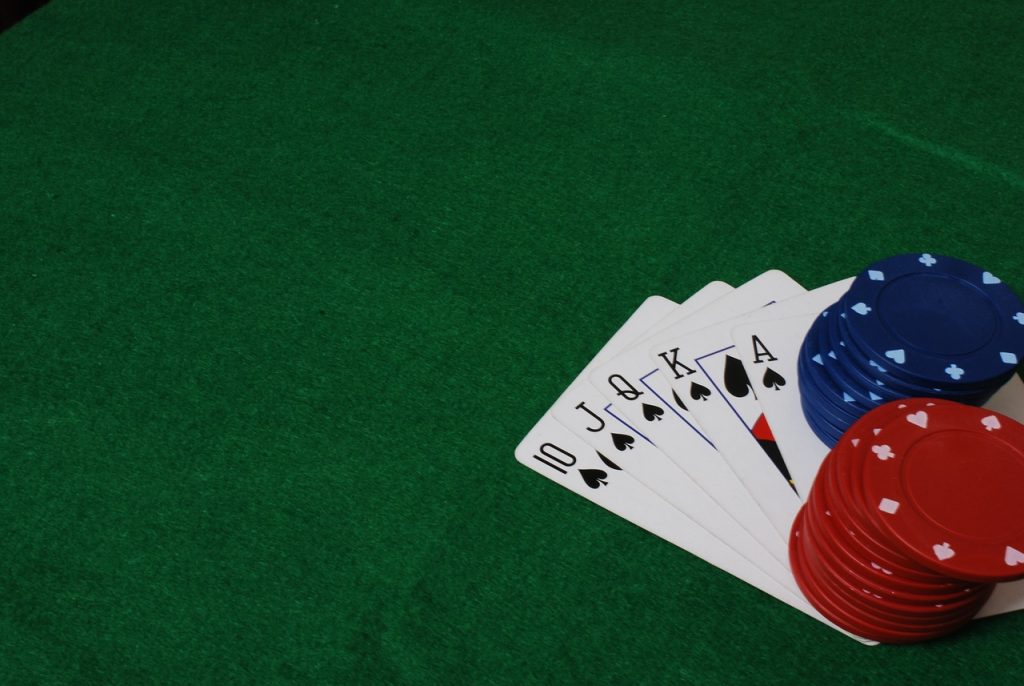
Photo by Pixabay
Choose your starting hands carefully
Before attempting poker limping correctly, one must understand which starting hands should be chosen. It will help you limit your losses if you play correctly after that. Starting hands for limping will differ from those you use when raising or re-raising, as fewer chips are at stake.
Experienced poker players tend to limp with hands such as suited connectors and mid-level pocket pairs. The key takeaway here is to stay active in your pre-flop play.
Instead, opt for a strategically sound approach. You can do it by choosing the right starting hands and gradually increasing the size of your pot to have a better chance of taking down your opponents’ poker chips.
Consider your position
Knowing when to “limp” in poker can be difficult, but considering your position can be a great start. Limping, or flat-calling the big blind pre-flop is a popular strategy for novice players. Proficient players understand that it’s not just about how high a hand is ranked but also where one sits at the table.
The position is integral when deciding whether to limp or raise pre-flop. Position affects the equity of hands and their playability post-flop. Limps can reap significant rewards if done correctly – otherwise, one may find themselves in less than desirable situations.
Considering your position before deciding to limp is essential to maximize your chances of coming away with a win.
Have patience
The best time to limp is when you sense that no one else in the game has raised or re-raised yet, and there is a good chance you can see the flop with it. It allows you to call less than the regular bet and still get cards to the board.

Photo by Pixabay
If someone at the table has already raised pre-flop, then limping doesn’t give you any advantage in terms of pot odds or implied odds. Try to avoid this if possible. Limping should never be used as a power play but rather as a discreet way to get more out of hand without committing too much money upfront.
Being aware of short-stacking
Poker limping requires a specific strategy, and being aware of short-stacking is key to doing it correctly. Because limping involves entering the pot with a much weaker starting hand than usual, short-stacking can be beneficial since it offers you some protection against your opponents.
Short-stacking limits the amount of money in play for each round. It makes bluffing more challenging and helps improve your game by allowing you to stay in hand longer.
Limping is often more profitable if done in position instead of out of position since you have greater control over the game’s outcome.
Effective short-stacking should always be front of mind when considering whether or not you should practice poker limping.
Play to win the pot
The casino guide says it best – to play poker limping correctly, it is essential to have a game plan in mind. Knowing how you want the hand to play out before it starts will help you stay on track and make decisions that align with your goals.
The key to successful poker limping is recognizing the type of board you are up against and determining pre-flop what future streets you would like to see. You can work backward and figure out if/when/where limping makes sense instead of more aggressive actions such as raising or folding.
Doing so enhances your chances of coming from each hand victorious, regardless of whether you choose to limp in.
Don’t be afraid to mix it up
Even experienced players tend to limp too much, but the truth is that limping should only sometimes be done the same way. Depending on the hand you hold and the situation at the poker table, you’ll consider if it could be an effective strategy.
If done correctly, lifting in a late position can often be a good play. If you’re in earlier positions with fewer players left to act behind you, it can become an invitation for others in the pot to take advantage of your willingness to invest.
Knowing when and where to repeat limp or three-bet should all also factor into your decision-making process.
Limp at the wrong times, and your stack will get crushed. Use it wisely when you play poker, and your profits can soar.

Photo by Pixabay
Play tight pre-flop
When limping is part of your plan, adhering to sound pre-flop principles and playing tight is essential. Doing so helps avoid costly mistakes when opponents decide to raise on the flop. You increase your chances of getting the necessary cards when you play tight.
Limping with speculative hands is only encouraged if you are certain that your opponents will pay to see the flop. If done right, limping can still be part of a winning strategy, so long as it is accompanied by sensible pre-flop play.
Play post-flop aggressively
The ability to successfully execute poker limping requires intense post-flop aggression. Limping is often a very loose play, and aggressive play on the flop is the preferred way to make up for that looseness.
It is especially true in low-stakes poker, where far fewer players try to out-think one another or use complex ranges or skill sets.
Aggressive post-flop play is essential to get maximum value from your pocket cards and take down pots with minimal effort. Aggression also gives you an edge since it allows you to pressure opponents who will then be forced to fold marginal hands. On the other hand, calling bets may cost them a larger pot.
Conclusion
Short-stacking should be considered when deciding whether or not to use this tactic, and an effective game plan should be formed before the hand is even started. It is also important to remember that tight pre-flop play should always accompany aggressive post-flop play to maximize profits. Doing so will maximize your chances of coming away with a winning hand and taking control of the result of your poker game.
The post Poker Limping: Doing it The Right Way appeared first on Championnat-De-Poker.
]]>The post Poker Skills That Foster A Positive Outlook In Life appeared first on Championnat-De-Poker.
]]>From managing risk to cultivating discipline, numerous lessons can be learned from playing poker, which will help you foster a more positive outlook on life. Here are such skills that can help you become more successful not just at the table but in all aspects of your life.
Read people
Developing the skill of “reading people” is essential in global poker. By observing and identifying what kind of poker players are sitting across the game table, you can gain an invaluable edge over your opponents. This skill involves being mindful and aware of what people are doing, their playing styles, and tells.
In addition to improving one’s poker game, this skill helps create a healthier outlook on life through more meaningful connections. By learning to read people when playing poker, you develop a more remarkable ability to be compassionate and understanding in other areas because you recognize how actions affect others and vice versa.
Poker encourages you to hone your body-language reading ability. This establishes a habit that strengthens your relationships with others and keeps you positive.

Control emotions
The ability to control one’s emotions helps make better decisions during an intense game. Controlling emotions in a poker game means staying calm and composed even when facing difficult situations.
It enables players to extract helpful information from the situation they find themselves in and prevents them from overreacting or making mistakes due to emotional distress.
This skill also extends itself into everyday life, allowing those who have mastered its principles to maintain a positive outlook despite the many trials and tribulations that life may present.
Therefore, assessing risks carefully while minimizing emotions is crucial when you play poker. These foster increased resilience and give players a greater understanding of how to cope with whatever comes their way.
Take calculated risks
Knowing how to take calculated risks in a poker game is an invaluable skill with many positive applications. While it’s true that players must weigh their chances of success when betting, they must also consider the cost-benefit analysis of a given move. This analytical skill forces one to be mindful of the risk they are taking but not overly fearful of becoming too conservative in their play.
Mastering this balance empowers players to make decisions confidently and helps them learn how to think critically in various scenarios. Overall, becoming proficient in taking calculated risks is essential for any serious player looking to improve their game and get more out of life.

Pay attention to detail
Being able to pay attention to detail is an often-overlooked skill when it comes to poker success. Paying attention to details can be the difference between making predictable, optimal decisions and making playable yet sub-optimal choices due to overlooking something important.
However, this same skill also carries over into one’s personal life. For example, simply changing your daily routine by taking an alternate route home from work helps you avoid the monotony of repeatedly doing the same things.
Improved focus on anything in life leads to increased clarity and awareness within ourselves. Also, our environment allows us to recognize growth opportunities and foster a more positive outlook.
Adapt quickly
Poker is a game of strategy, and to be successful, you must take into account your opponent’s actions and the cards being dealt.
When faced with unexpected situations on the poker table and in life, learning how to switch up tactics quickly can be beneficial. Adaptability encourages people to remain resilient despite changes or unexpected outcomes in games and other aspects of life.
A great way to foster adapting quickly is by playing different poker games, such as texas holdem game, Omaha, and others. Expanding your repertoire of poker games and shifting from one to the other trains you to assess the situation given the parameters of the game and make the best decisions off of it.
Another way to put this in context is when one plan does not work out, having the agility to come up with another solution is vital. With these valuable benefits, developing quick adaptability is an essential skill that all poker players should strive for.
Cultivate discipline
Cultivating discipline is a core poker skill that has a meaningful carryover effect on daily life. Players must demonstrate controlled aggression, strategic patience, and the ability to recognize patterns to master the game of poker effectively.
Outside of poker, having the forethought and resolve to know when and where to commit time and energy toward something is an invaluable characteristic that can genuinely improve a life.
Seeing success on the felt can act as an impetus for demonstrating self-control elsewhere, allowing a player’s newfound discipline to habituate into further achievements outside the card table. Whether it’s diet or exercise, finance or career moves, there are myriad aspects in which cultivating discipline can bring about positive results for one’s well-being.

Conclusion
Ultimately, poker is an enjoyable game with many practical applications across various aspects of life. Taking calculated risks, paying attention to detail, adapting quickly, and cultivating discipline are all essential skills necessary for success in the card game and the world beyond the felt. As such, mastering poker can effectively gain more control over one’s life and yield personal growth that goes far beyond simply acquiring money.
As with any worthwhile endeavor, learning and practicing the game leads to increased confidence and capability. Adapting its strategic principles to our lives creates opportunities for real personal growth in areas such as discipline and awarenes. These skills will undoubtedly prove invaluable throughout one’s lifetime. Thus, playing poker provides entertainment and valuable insights about ourselves, both on and off the felt!
The post Poker Skills That Foster A Positive Outlook In Life appeared first on Championnat-De-Poker.
]]>The post Gambling And Casino-Related Movies Every Movie Buff Or Game Enthusiast Should See appeared first on Championnat-De-Poker.
]]>
Rounders (1998):
Starring Matt Damon and Edward Norton, Rounders follows a reformed gambler who returns to the world of high-stakes poker after his friend finds himself in deep with some dangerous criminals. The film offers a no-holds-barred look at the underground world of high-stakes poker and its many colorful characters while providing an entertaining story about friendship and loyalty.
What’s interesting about this film is that Matt Damon’s character is a law student, so it offers a unique blend of legal and gambling elements that are sure to keep viewers entertained. Then there’s also the fact he later on played in the World Series of Poker, which makes his performance in this movie all the more noteworthy. Lastly, poker game legend Johnny Chan appears in the film, making it a must-watch for any poker enthusiast.
The Hangover (2009):
What list of gambling and casino-related films would be complete without The Hangover? Starring Bradley Cooper, Ed Helms, and Zach Galifianakis, this classic comedy follows three friends who travel to Las Vegas for a bachelor party. Then the next morning, they can’t remember a thing. It’s not just an excuse for slapstick humor, though, as the group soon discovers that some of their activities from the night before may have involved stealing Mike Tyson’s tiger and gambling away all of their money at a casino.
This movie captures Vegas in all its wildness and glory, with nods to the city’s legendary casinos, its vibrant nightlife, and of course, all the drunken shenanigans that can happen. It was a massive success at the box office and won numerous awards. Needless to say, it’s a must-watch for any movie buff or gambling enthusiast looking for some laughs.

Casino (1995):
Directed by Martin Scorsese and starring Robert De Niro, Casino is a classic crime drama about two mobsters running a casino in Las Vegas. It offers an unflinching look at the inner workings of the mafia and how their corrupt dealings affect the city and its people. There’s plenty of action, drama, and suspense as the two mobsters struggle to stay in control while dealing with rival gangs, corrupt politicians, and the FBI.
Casino captures all the glitz and glamor of Las Vegas during its heyday in the 70s and 80s. It’s a thrilling and gripping tale that offers a colorful look at the mafia’s control of the gambling industry in Las Vegas. It’s a must-watch for any movie buff or game enthusiast who wants to experience Las Vegas like never before.
21 (2008):
Starring Jim Sturgess and Kevin Spacey, 21 is a fast-paced drama based on the book Bringing Down the House by Ben Mezrich. It follows a group of MIT students who use their card-counting skills to win big at Las Vegas casinos. As they become more successful, they begin to attract the attention of casino security.
What’s interesting about this movie is that it’s based on an actual group of students who used advanced mathematical strategies to win millions of dollars in casinos. It offers a unique look at professional gambling and how it can quickly become an obsession. For any movie buff or game enthusiast, 21 is a must-see film that will leave you on the edge of your seat until the end.
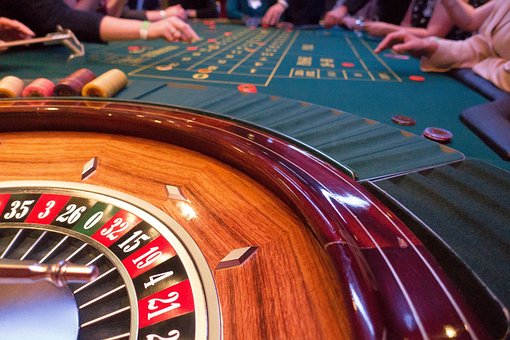
Ocean’s Eleven (2001):
Starring George Clooney, Brad Pitt, Julia Roberts, and Matt Damon, Ocean’s Eleven is a heist film about a group of criminals trying to rob three Las Vegas casinos simultaneously. This movie seamlessly combines suspense and comedy as the robbers devise an ingenious plan to pull off the ultimate crime. Because the movie became such a hit, it then went on to have sequels Ocean’s Twelve and Ocean’s Thirteen, each one following the same rag-tag team of criminals as they come up with new and exciting ways to break into casinos. And they also play a few poker hands along the way.
This movie series stands out from other films in its genre because it focuses on the characters as much as it does the crime itself. The team of robbers is a diverse mix of personalities and quirks that keeps viewers engaged throughout the movie. It’s also a great example of how criminals can use gambling and casino-related activities to pull off their heists, making it a must-watch for any fans of the genre.
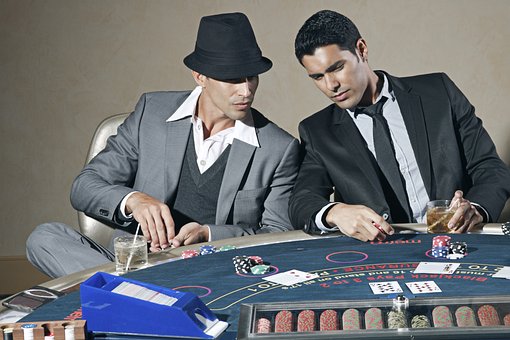
The Gambler (1974):
A classic movie starring James Caan, The Gambler follows the story of Axel Freed, a literature professor whose gambling habit lands him in more trouble than he can handle. With his debts piling up and all other options exhausted, Axel resorts to desperate measures to take on the mobsters out to get him. A great drama/thriller that is worth a watch.
The movie takes a hard look at the dangers of gambling addiction, showing how one man’s obsession can quickly spiral out of control. Although released in 1974, The Gambler remains relevant today and is an excellent lesson on the importance of being responsible with money when playing games. It’s certainly worth watching for anyone who loves gambling or is curious about the world of casino games.
Silver Screen And Casinos: What A Great Combination
These are some of the best movies about casinos that you can watch for an entertaining night. Whether it’s a wild comedy or a thrilling crime drama, these films capture and explore different aspects of the game industry. So grab some popcorn and get ready to take a wild ride through the world of gambling and casinos. And who knows? Maybe there will be a movie about online poker in the future.
The post Gambling And Casino-Related Movies Every Movie Buff Or Game Enthusiast Should See appeared first on Championnat-De-Poker.
]]>